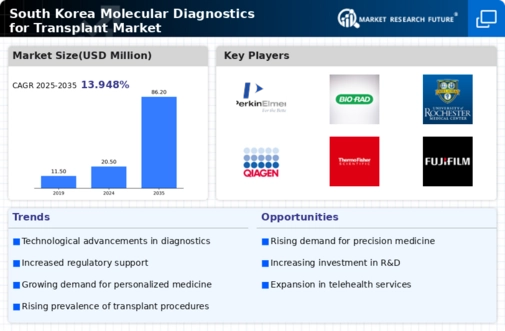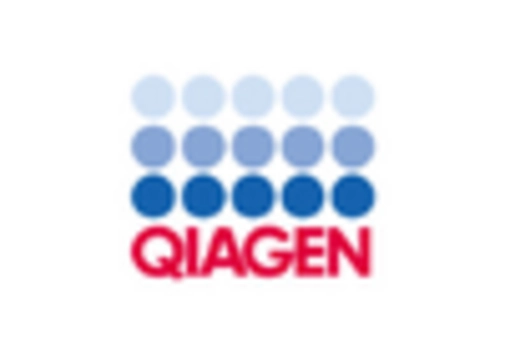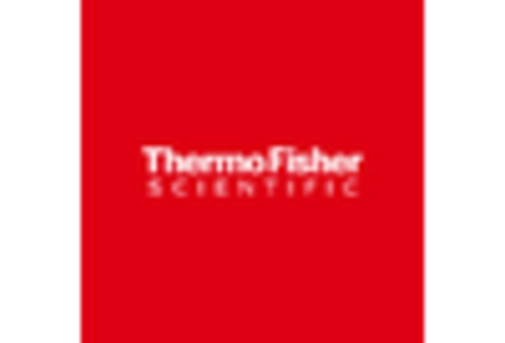Emerging Market Opportunities
Emerging market opportunities present a compelling driver for the Global South Korea Molecular Diagnostics for Transplant Market Industry. As healthcare systems evolve and expand, particularly in developing regions, there is a growing recognition of the importance of molecular diagnostics in transplantation. This expansion opens avenues for market players to introduce innovative diagnostic solutions tailored to diverse healthcare settings. The increasing global focus on improving transplant success rates and patient care creates a favorable environment for growth. Companies that strategically position themselves to capitalize on these emerging opportunities may experience substantial market gains, contributing to the overall growth trajectory of the industry.
Government Initiatives and Funding
Government initiatives and funding significantly bolster the Global South Korea Molecular Diagnostics for Transplant Market Industry. Policymakers are increasingly recognizing the importance of molecular diagnostics in improving transplant outcomes and are allocating resources to support research and development. Initiatives aimed at enhancing transplant infrastructure and promoting public awareness contribute to the market's growth. The South Korean government has implemented various programs to facilitate organ donation and transplantation, which indirectly supports the molecular diagnostics sector. This favorable regulatory environment is likely to enhance the market's prospects, contributing to its anticipated CAGR of 10.5% from 2025 to 2035.
Rising Demand for Organ Transplants
The Global South Korea Molecular Diagnostics for Transplant Market Industry experiences a surge in demand for organ transplants, driven by an increasing prevalence of chronic diseases and aging populations. As the need for organ transplantation escalates, molecular diagnostics play a crucial role in ensuring compatibility and reducing transplant rejection rates. This heightened demand is reflected in the market's projected growth, with an estimated value of 1250 USD Million in 2024, potentially reaching 3750 USD Million by 2035. The compound annual growth rate (CAGR) of 10.5% from 2025 to 2035 underscores the industry's pivotal role in enhancing transplant success rates.
Technological Advancements in Diagnostics
Technological innovations significantly influence the Global South Korea Molecular Diagnostics for Transplant Market Industry. Advances in genomic sequencing, bioinformatics, and molecular imaging enhance the accuracy and efficiency of transplant diagnostics. These innovations facilitate the identification of genetic markers associated with transplant compatibility, thereby improving patient outcomes. As healthcare providers increasingly adopt these advanced technologies, the market is likely to expand. The integration of next-generation sequencing and other cutting-edge technologies is expected to drive the market's growth trajectory, aligning with the projected increase in market value from 1250 USD Million in 2024 to 3750 USD Million by 2035.
Increasing Awareness of Personalized Medicine
The growing emphasis on personalized medicine significantly impacts the Global South Korea Molecular Diagnostics for Transplant Market Industry. As healthcare shifts towards tailored treatment approaches, molecular diagnostics become essential for determining the most effective transplant strategies for individual patients. This trend is driven by an increasing understanding of genetic variations and their implications for transplant success. The rise in personalized medicine is expected to propel the market forward, aligning with the projected growth from 1250 USD Million in 2024 to 3750 USD Million by 2035. The focus on individualized care is likely to enhance patient outcomes and drive demand for advanced diagnostic solutions.


















